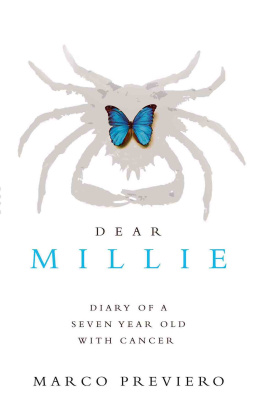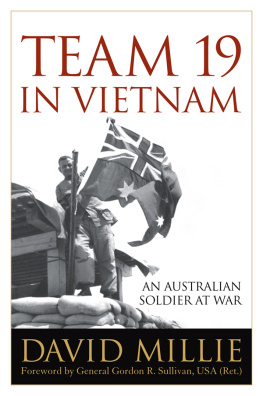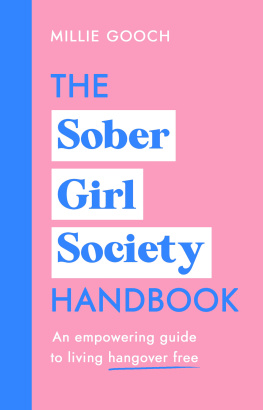NEW HORIZONS IN CRIMINOLOGY
PHILOSOPHICAL CRIMINOLOGY
Andrew Millie
First published in Great Britain in 2016 by
Policy Press University of Bristol 1-9 Old Park Hill Bristol BS2 8BB UK Tel +44 (0)117 954 5940 e-mail
North American office: Policy Press c/o The University of Chicago Press 1427 East 60th Street Chicago, IL 60637, USA t: +1 773 702 7700 f: +1 773-702-9756 e:
Policy Press 2016
British Library Cataloguing in Publication Data
A catalogue record for this book is available from the British Library
Library of Congress Cataloging-in-Publication Data
A catalog record for this book has been requested
ISBN 978-1-4473-2370-9 hardcover
ISBN 978-1-4473-2374-7 ePub
ISBN 978-1-4473-2375-4 Mobi
The right of Andrew Millie to be identified as author of this work has been asserted by him in accordance with the Copyright, Designs and Patents Act 1988.
All rights reserved: no part of this publication may be reproduced, stored in a retrieval system, or transmitted in any form or by any means, electronic, mechanical, photocopying, recording, or otherwise without the prior permission of Policy Press.
The statements and opinions contained within this publication are solely those of the author and not of the University of Bristol or Policy Press. The University of Bristol and Policy Press disclaim responsibility for any injury to persons or property resulting from any material published in this publication.
Policy Press works to counter discrimination on grounds of gender, race, disability, age and sexuality.
Cover design by Policy Press
Front cover image: istock
Readers Guide
This book has been optimised for PDA.
Tables may have been presented to accommodate this devices limitations.
Image presentation is limited by this devices limitations.
About the author
Andrew Millie is Professor of Criminology at Edge Hill University and Editor of Policy Presss New Horizons in Criminology book series. His current work explores the intersections between criminology and philosophy, human geography and theology. Andrew is also known for his work on policing and anti-social behaviour. His previous publications for Policy Press are Securing Respect: Behavioural Expectations and Anti-Social Behaviour in the UK (2009b), and the co-authored Anti-Social Behaviour Strategies: Finding a Balance (2005).
Acknowledgements
I am hugely thankful to my wife Lesley and children Ernest and Martha. I love you all to the moon and back. Maybe my next book will have more pictures (I know its not a patch on The Gruffalo!) I also appreciate the support that I have from my mother, Joan Millie, as well as from various colleagues and friends. In particular, at Edge Hill University I want to thank Franco Rizzuto who has been happy for me to explore what is non-traditional territory for his department. It has been quite an adventure and at Edge Hill I am especially grateful for the encouragement of Janice Adams, Craig Collinson, Leon Culbertson and Chris Lawton. I also wish to thank Simon Mackenzie for our early discussions at the University of Glasgow on rules and criminology, and for helping to organise a joint panel with Richard Sparks at the 2009 British Society of Criminology Conference in Cardiff on Civility, criminology and philosophy. Some of the ideas developed in this book had early outings in various articles and conference presentations. These are cited where appropriate. I am grateful for the support from Policy Press, especially from Alison Shaw, for encouraging me with my ideas for a New Horizons in Criminology book series, and for the specific support and guidance from Rebecca Tomlinson and Victoria Pittman. Others who have helped me along the way include Jon Bannister, Karen Bullock, Rosie Erol, Victoria Herrington, Mike Hough and Karl Roberts. Many others deserve thanks and I apologise if I have missed anyone out. I wish to thank the anonymous reviewers who have helped to strengthen the manuscript and, finally, I wish to thank you for picking this book up. I hope you enjoy it!
NEW HORIZONS IN CRIMINOLOGY
Series editor: Professor Andrew Millie, Department of Law and Criminology, Edge Hill University, UK
Preface
Policy Presss New Horizons in Criminology book series provides concise authoritative texts that are international in scope and reflect cutting edge thought and theoretical developments. These short, accessible texts are written so that the nonspecialist academic, student or practitioner can understand them, by explaining principles and developments clearly before going deeper into the subject. Written by leading authors in their fields, the series will become essential reading for all academics and students (and practitioners) interested in where criminology is heading. The series was launched in 2016 with some great authors and important titles. The first books are: Convict Criminology by Rod Earle; Indigenous Criminology by Chris Cunneen and Juan Tauri; and Sports Criminology by Nic Groombridge. All three are highly recommended. Added to this is my own contribution on Philosophical Criminology. Other titles are in the pipeline.
The subject of criminology has always drawn on philosophical ideas, although this has often been on a pick-and-mix basis rather than a concerted engagement. As noted in this books introduction, many criminologists would question the need for closer engagement with philosophy, and similarly not all philosophers will see the merit of engaging with criminology. Yet, the starting point for this book is that philosophers have for centuries been asking questions concerning how we get on with one another and what happens when we do not that have direct bearing on criminological concerns. Philosophers might also gain from greater exposure to the mess and dirt of the real world as exposed by criminologists. Readers of this book will gain philosophical and theoretical insights into some big questions of direct relevance to criminology concerning values, morals, aesthetics, order/disorder, rules and respect. The book also highlights areas that are not often explored by criminologists, from landscape aesthetics through to theology. Examples are drawn from a variety of countries. My hope is that this book will become essential reading for those interested in questioning some of the underlying assumptions of the criminological enterprise.
ONE
A philosophical criminology
Introduction
This is a book about philosophy and criminology. There will be criminologists who question the need for closer engagement with philosophy and, likewise, philosophers who do not see a great deal of benefit from associating with criminology. My argument here is that philosophy is essential to criminology as philosophers have for centuries been asking questions concerning how we get on with one another and what happens when we do not that have direct bearing on criminological concerns. Philosophers might also gain from engagement with criminology and greater exposure to the messy and dirty real world. For some the subject of criminology is simply a sociological or social policy interest. This book takes the view that criminology is much more than this, that there is also room for a philosophical criminology. I emphasise that this is a philosophical criminology. Of course, there are many different philosophical standpoints as much as there are differing criminological perspectives, and it would be wrong to claim that this book presents the definitive philosophical criminology. Clearly I have my own views, values and preferred approaches which steer my writing. Thus, what this book contains is my take on a philosophical criminology. The reader is free to disagree. In fact, disagreement and debate are welcomed.








